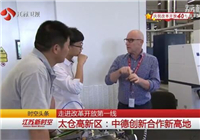The city of Taicang is reputed as the hometown of German-funded Enterprises in China, as is evidenced by the settlement of German-funded enterprises in the Taicang High-tech Zone which accounts for more than 95% of the city’s total. Relying on its own initiatives and innovative exploration, Taicang High-tech Zone has carved out a characteristic road of Sino-German cooperation in the past 25 years and has become a new window for Jiangsu’s opening up to the outside world.
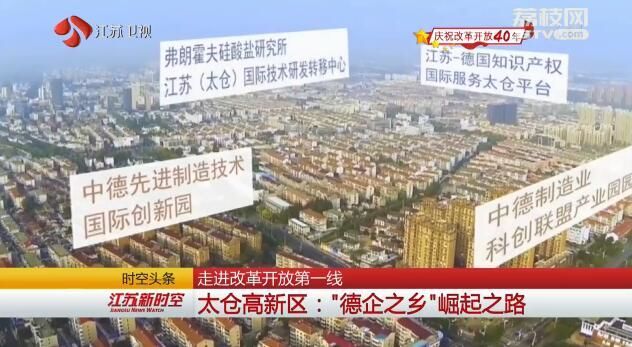
Taicang now boasts more than 300 German-funded enterprises totaling 4.5 billion US dollars of investment and registering more than 50 billion yuan of annual industrial output value.
The breathtaking achievements have resulted from the launch of the city’s provincial level hi-tech zone in 1993 when Taicang became a county level city.
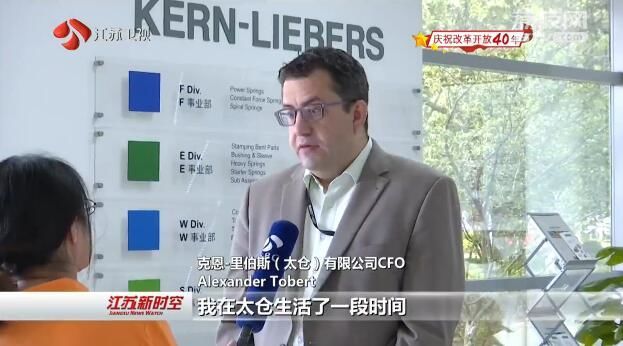
Kern-Liebers Taicang Co Ltd was the first German-funded enterprise that launched its business endeavors in the small city of 700,000 people.
The German business persons were very cautious at the beginning as is evidenced by the fact that they rented a workshop and hired less than 10 workers.
It was not long before they gave the thumbs up to Taicang's service and environment and began to buy land to build factories, increase capital and expand production.
Under the spillover effect of Kern-Liebers, more and more German-funded enterprises followed suit to launch investment in Taicang, which in turn boosted the emergence of the precise machinery manufacturing industry.
However, what is embarrassing is that after a period of time, local talents can’t keep up with the demand of German enterprises.
At the same time, many development zones around the county have introduced preferential measures to offer olive branches to the German-funded enterprises.
Authorities in Taicang have ventured to maintain its first-mover advantage of cooperation with Germany through various measures.

At present, Taicang has established nine training centers and supplied more than 10,000 high-quality skilled personnel for the local enterprises. The trainees learn from both vocational school education and in-depth training in the enterprise. This "student + apprentice" school-enterprise cooperation dual education model has gained momentum in Taicang for more than ten years.
In the course of the development, authorities in Taicang was quick to make adaptations, as is evidenced by their observation of the fact that the German-funded enterprises are outnumbered by the local enterprises by nine-tenths but their combined output value was twice as much as the latter. They soon came to be aware that they had to change their way of thinking in the cooperation with Germany.
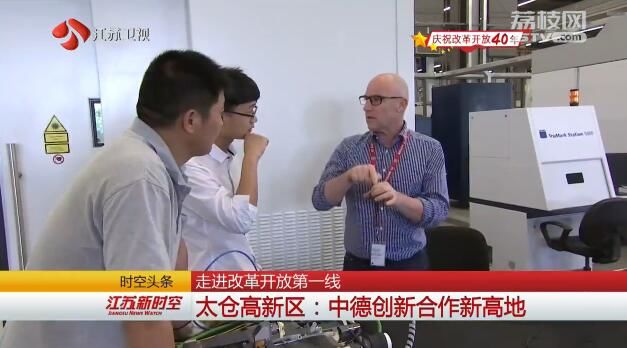
As a result, Taicang has been hosting a "Taicang Day" event each year in Germany, organized private enterprises to go on field trips in Germany, subsidized the introduction of overseas talents and technologies by local enterprises, and built platform carriers such as the Sino-German SME Cooperation Innovation Park, Sino-German Manufacturing Science and Technology Alliance Industrial Park, etc.
Through a series of measures, Taicang High-tech Zone has gradually transplanted the "gene" of "Made in Germany" into local enterprises, and has already bridged more than 400 private enterprises and German enterprises to carry out production support, joint research and development, capital and talent exchange and cooperation.
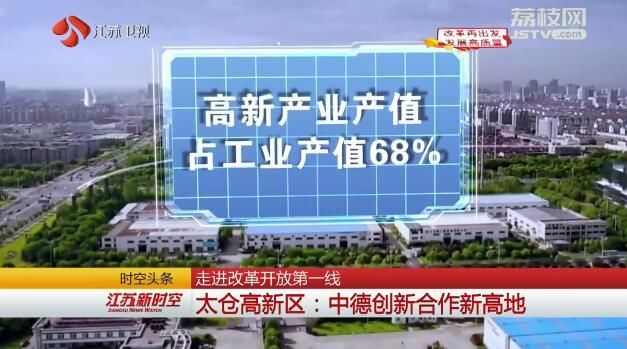
From the land of fish and rice to the hometown of German-funded enterprises, from introduction to going global, from economic and trade cooperation to technological innovation and intelligent manufacturing, Taicang has grown into a highland for German investment. Its hi-tech zone is home to 147 hi-tech firms with the combined output value of the hi-tech and emerging industries accounting for 68% and 56% of the city’s total industrial output value.
